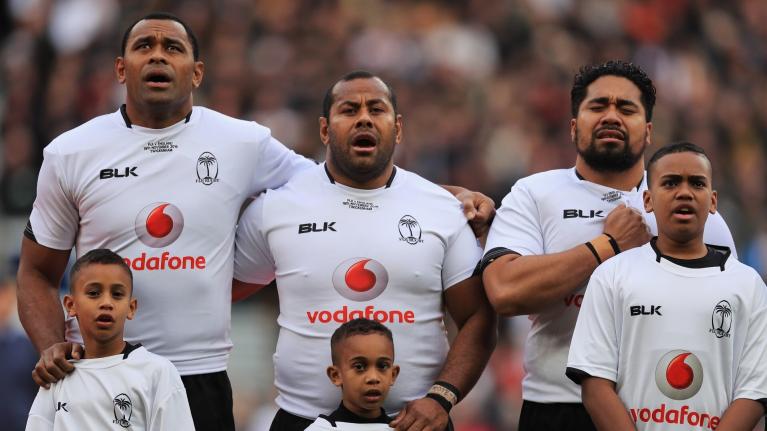Could Dan Leo's European lobbying be about to pay off for the Pacific Islands Test nations?

Pacific Rugby campaigners are pushing Europe's top unions to agree to a profit-sharing deal that could help transform the Test fortunes of Samoa, Tonga and Fiji.
Pacific Rugby Players Welfare (PRPW) hopes to organise a meeting with World Rugby and the decision-makers at the English, Irish, Scottish, Welsh and French unions to thrash out a new deal for the Pacific Island nations.
Chief executive Dan Leo confirmed PRPW has proposed that those tier one nations agree a 10 per cent profit share when hosting the Pacific Island nations in November Test matches in Europe.
Leo said just 10 per cent of profits from a sell-out Twickenham crowd could fund Samoa's senior rugby programmes for as long as three years. "We have been highlighting problems in Pacific Islands rugby for some time and also lobbying for change, but this really feels like the start of something hugely positive," said Leo.
"We've been in contact with the unions in England, Ireland, Scotland, Wales and France, and all have been positive about this idea, and about meeting with us. We're in discussions with World Rugby too, and we hope the next steps are to formalise these talks in sit-down meetings.
"A profit-share like this would be huge. Say for the sake of argument the RFU could make a £10million profit on a sell-out match at Twickenham. Well, £1million could fund Samoa's programmes for three years."
Former Wasps lock Leo was among the group of Samoa stars who threatened to strike ahead of facing England at Twickenham back in November 2014. That squad's concerns stretched beyond low pay and into worries over union governance, but Leo believes World Rugby has helped the national unions in the Pacific Islands solve many of those issues in the last five years.
"A deal like this would mean the union could pay the players more than £300 or £400 for the match, they might be able to afford £2,000 or £3,000 per player,” Leo continued.
"But it's not only about the difference it makes for players, it could also generate a stronger game in the islands. We feel that home matches against tier one nations are not the answer, the stadia are small and the people there don't have money for tickets either.
"We need to be able to remunerate players fairly, or in closer comparison to tier one nations. So we want to shoot at the heart of the problem rather than deal with the symptoms.
"The eligibility is a symptom of the problem that the Pacific Islands don't have any money. We need to negotiate some sort of profit share with tier one nations hosting tier two.
"So that's what we're asking for. But I don't think a request for a profit share of 10 per cent is astronomical. Player eligibility issues and the migration of talent to Europe is a symptom of the fact the Pacific Islands don't have any money or any means of generating any money.
"We hope a profit share like this could be the catalyst to help the Pacific Islands set up semi-professional leagues on the islands. And that would help keep players at home rather than heading to overseas to play their rugby."
- Press Association
WATCH: Former England and British & Irish Lions player John Bentley speaks about the deadly disease Japanese Encephalitis
Latest Comments
How many teams is he eligible for? Just Tonga? The way Pellegrini is playing he might need to change his attitude to defence because the slow he gets, the further you get into the midfield.
Why would be great for Tonga. I’ve said it before, he’d be the worlds best playmaking 12 if he switched and it’s probably going to be the only way he can get onto the field in 2027 with Dmac and Pellegrini ahead of him. Would be great if he did come back to SR as a bargain but does he have an option for Fiji too if his nephew is playing for them?
Go to commentsI don’t know about that, but I aint no prop. Certainly the picture looked like they couldn’t even line up straight and got pinged twice for wheeling as a result, or Bartlett having his feet in a terrible position.
Those two on the other side were pretty experienced as wisey props though!
Go to comments